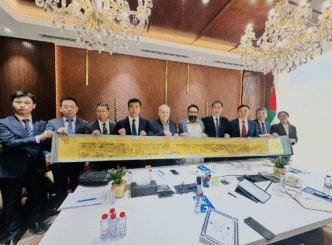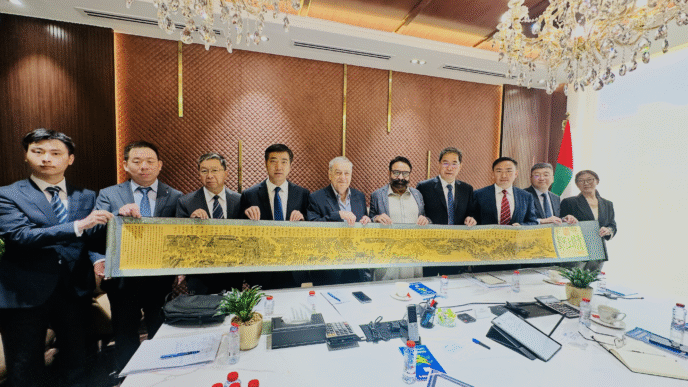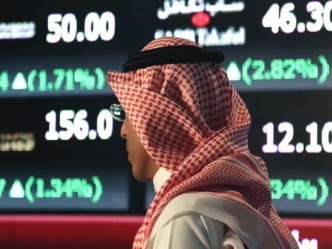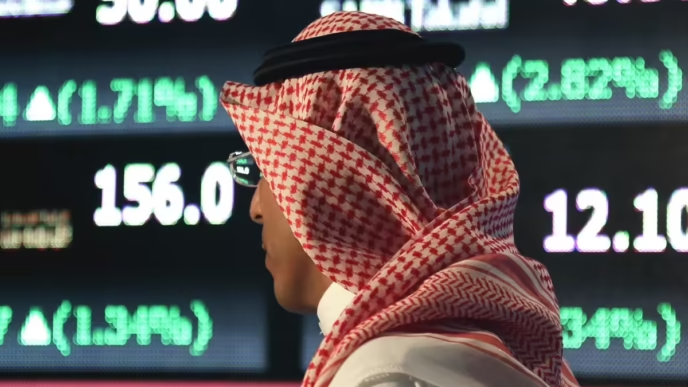In a development that underscores the deep intersections of politics, finance, and digital assets, new details have emerged about how Binance, the world’s largest cryptocurrency exchange founded by Changpeng “CZ” Zhao, provided early support to a Trump family–linked crypto venture — just months before Zhao secured a presidential pardon that allowed him to avoid additional U.S. penalties.
The revelations paint a complex picture of the crypto industry’s growing influence in political circles, as well as the blurred boundaries between global financial power and political connections.
A Shadow Partnership Between Binance and Trump-Linked Investors
According to multiple accounts from people familiar with the matter, Binance offered both advisory and technical assistance to a blockchain initiative involving individuals close to the Trump family’s business network. The project, centered on a digital asset platform designed to promote “America First” investments, was quietly incubated in late 2023 and early 2024 — a period when Zhao’s legal troubles with the U.S. Department of Justice were still unresolved.
Though Binance never publicly announced its participation, internal communications suggest that company affiliates provided strategic consulting and access to token infrastructure via its Binance Smart Chain ecosystem. Several of the Trump-aligned backers reportedly viewed Binance’s involvement as a means of fast-tracking the venture’s credibility and technical capacity.
“Binance saw it as a potential political bridge,” said one individual familiar with the talks. “For the Trump network, it was a way to connect their brand to a major name in crypto.”
The Timing: Before Zhao’s Legal Breakthrough
The timing of Binance’s informal support now appears significant. Just months after the Trump-linked crypto project began circulating in private investor circles, Zhao reached a plea deal with U.S. prosecutors in which he admitted to anti–money laundering violations but avoided imprisonment beyond time served.
Soon after, reports surfaced that Zhao’s legal exposure had been further reduced following a presidential pardon, which some political observers called “unprecedented” in scale for a financial case of this magnitude.
While there is no public evidence of direct quid pro quo between Binance’s cooperation with the Trump-linked crypto initiative and Zhao’s later clemency, the overlap in timing has drawn scrutiny.
“Even the perception of influence raises red flags,” said a former federal financial crimes investigator. “When a global crypto magnate offers resources to a politically connected venture during ongoing legal negotiations, it’s bound to attract attention.”
Inside the Trump Family’s Crypto Ambitions
The Trump family has long shown interest in cryptocurrency, with Donald Trump Jr. and Eric Trump both making public statements supportive of digital asset innovation. Donald Trump himself, once a crypto skeptic, pivoted toward the sector after leaving office, launching NFT collections and signaling openness to blockchain-based fundraising mechanisms for political and business initiatives.
The project Binance reportedly supported — a still-unlaunched venture sometimes described as “a digital infrastructure for patriotic investing” — was meant to combine tokenized securities with blockchain transparency tools, positioning itself as a crypto-native platform for American entrepreneurs.
Advisers familiar with the effort say the team envisioned a hybrid of crypto exchange, investment fund, and cultural movement — a kind of “MAGA meets DeFi” ecosystem.
While the Trump Organization was not formally listed as a participant, individuals close to the family, including former campaign associates and donors, played active roles in early funding discussions.
Binance’s Political Strategy
For Binance, which has faced years of regulatory battles across multiple jurisdictions, cultivating political goodwill in the United States had become a strategic priority.
After pleading guilty in 2023 to federal charges involving compliance failures, Binance agreed to billions in fines and corporate reforms. Yet Zhao, who had built the company into a global behemoth with over 150 million users, remained a central — and controversial — figure.
“Binance needed friends in Washington,” said a former company adviser. “They were willing to engage with anyone who could soften their image or influence future policy outcomes.”
That outreach reportedly included meetings between Binance-affiliated lobbyists and figures tied to conservative think tanks, as well as outreach to business networks associated with the Trump political orbit.
While Binance publicly maintains political neutrality, internal memos from the period suggest a calculated effort to build channels with future power centers, anticipating a potential Trump return to office in 2025.
A Calculated Risk Amid Legal Uncertainty
At the time of the Trump crypto venture’s development, Binance was in crisis mode. The company had agreed to pay more than $4 billion in fines, while Zhao himself faced sentencing in the U.S.
Any association with politically charged projects risked further regulatory scrutiny. Yet sources familiar with the internal dynamics say Zhao’s advisers viewed the Trump family’s project as low-risk, high-reward — a gesture of goodwill that might later prove useful.
“CZ’s team believed that showing cooperation with prominent U.S. business figures could help rehabilitate his image,” said one insider. “It was a form of soft diplomacy.”
That calculation may have paid off. Despite the severity of the charges, Zhao’s legal resolution was notably lenient, and he has since resumed an active role in international crypto advocacy from Dubai.
Political Fallout and Perception Management
The revelation of Binance’s involvement has reignited debates about foreign influence in U.S. politics through digital finance, especially as cryptocurrency becomes increasingly intertwined with campaign fundraising and policy lobbying.
Lawmakers on both sides of the aisle have called for greater transparency in crypto’s political footprint. Democratic legislators, in particular, have expressed concern that foreign-based exchanges may seek to shape U.S. financial regulations through back-channel alliances with political actors.
“The crypto sector operates in a gray area that’s ripe for exploitation,” said one senator familiar with digital asset oversight. “When you mix unregulated money flows with political patronage, it becomes a national security issue.”
Binance has denied any improper influence, stating that it “works with many partners globally” and that “no collaboration with any political figure or family has involved quid pro quo arrangements.”
Still, analysts note that the optics are problematic. For a company under federal watch, even the appearance of political entanglement raises questions about corporate governance and accountability.
Broader Implications for Crypto and Politics
The Binance-Trump connection reflects a broader transformation in the crypto industry’s political posture. What began as a decentralized, anti-establishment movement has matured into a powerful lobbying force increasingly integrated with mainstream finance and party politics.
Major players are now investing heavily in political influence: forming crypto-focused PACs, funding policy think tanks, and courting both Republican and Democratic candidates ahead of the 2026 midterms.
“The next frontier of crypto power isn’t technological — it’s political,” said a blockchain policy analyst. “Exchanges and token issuers want a seat at the table when laws are written. The Binance episode is just one example of how far that influence now extends.”
Conclusion: Power, Pardon, and Perception
The convergence of Binance’s global influence, Zhao’s legal struggles, and the Trump family’s growing crypto ambitions underscores how digital assets have become a new arena of geopolitical and political negotiation.
Even absent direct wrongdoing, the timing of Binance’s quiet involvement in a Trump-linked project — followed by Zhao’s pardon — illustrates the perception risks facing both the crypto industry and political figures courting its wealth and innovation.
What was once a frontier of financial freedom has now become a stage where money, politics, and technology collide, shaping not just the future of finance but the dynamics of power itself.
As the lines between corporate strategy and political access blur, one thing is clear: in the modern era of digital wealth and influence, every blockchain transaction has a political shadow.















